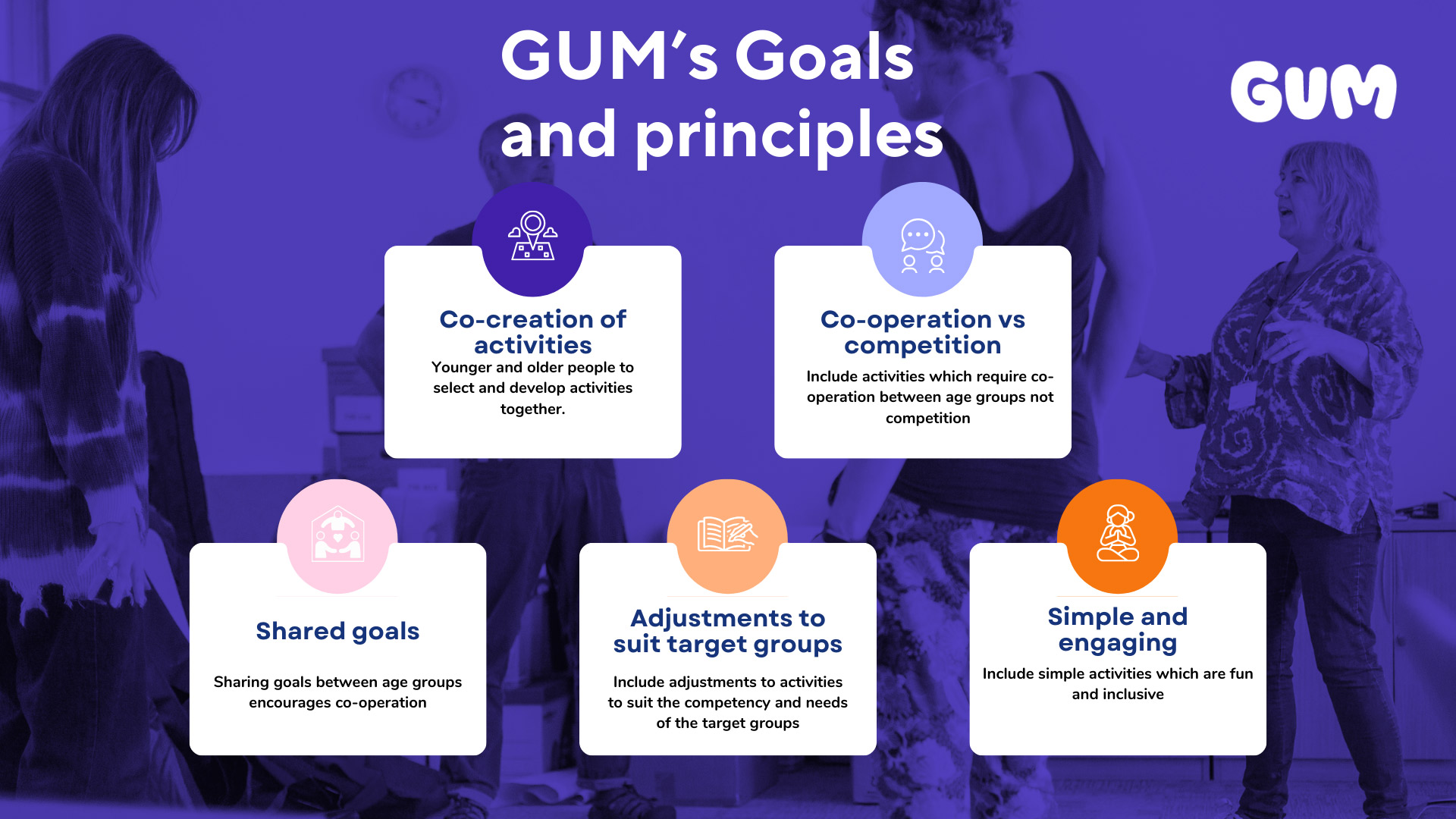
What makes generations stick together?
Uniting generations to take part in activities can create lasting bonds between young people and older people and can have positive effects on both generations, preventing loneliness, reducing depression, and improving self-esteem.
Learning and fun go hand in hand when generations participate in activities together. By the end of this stop, you will be able to illustrate the goals, principles and components of an intergenerational movement and physical activity programme.
What are we talking about? Glossary of key terms
In this section, we will share with you some important terms and definitions for concepts and elements which will run through the training tool. You can see it as a quick onboarding phase to ensure we all speak the same language.
GUM’s goal and principles
The main goal of the Generations Uniting through Movement project is to increase physical activity in young and old people alike by developing a programme to upskill practitioners to facilitate collaboration projects in community settings which bring together different generations to participate with each other.
To achieve this goal, the partners have identified 5 key principles.

GUM Theory of change
In this video, Remo Mombarg, Professor in Sports Education & Youth Sports at the School of Sports Studies of Hanze University of Applied Sciences is presenting the elements identified by the GUM partnership as the key triggers for physical activity in young and older generations.
Some tips from Remo:
- Create an equal playing field
- Encourage a buddy system - to boost motivation
- Ensure your participants have a sense of ownership of the activities
- Be mission-oriented - provide a purpose for people to be active
Let’s check and challenge
We have developed a quick game to help you identify the key takeaways from this first stop on our roadmap.
What do you remember? Which statement would you choose?
Build your summary by choosing the correct statement

